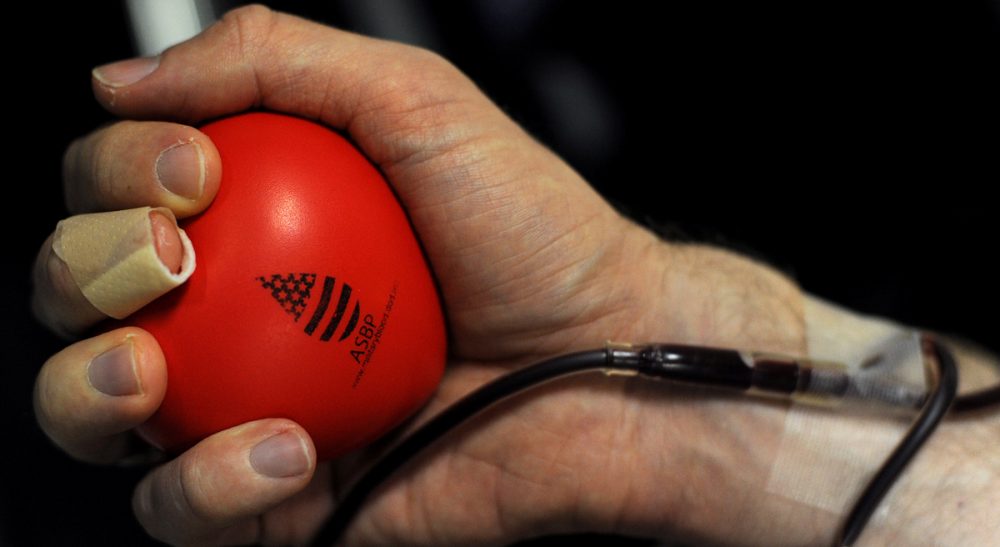Advertisement
Ending Stigma — And Better Assessing Risk — Among Blood Donors

Eleven years ago, a student at the university where I was teaching filed a complaint that the use of student activities fees for campus blood drives was discriminatory, because the fees supported an activity in which he was not allowed to participate. As a sexually active gay man, Food and Drug Administration regulation prevented him from donating blood.
Today, he is still prohibited from donating. And if he has sex with a man at least once a year, he will still be barred under a new proposed FDA policy.
Any man who has had even a single sexual encounter with another man in the last 38 years is prohibited from donating blood, ever, in the United States.
This is not a policy only about gay men, though it rests on stereotypes about them. The net is cast wider here. It covers any man, regardless of his sexual identity, who has had sex with a man in this time frame. The policy assumes that all such men are at high risk of having HIV or other infections, and, as a result, excludes all of them from blood donation. The current Food and Drug Administration policy, in place since 1992, and in a somewhat different form since 1983, permanently “defers” any man who has had sex with another man (MSM) — even once since 1977 — from donating blood. In other words, any man who has had even a single sexual encounter with another man in the last 38 years is prohibited from donating blood, ever, in the United States.
Decades of opposition to this policy have consistently challenged both its scientific basis and moral bias. On December 23, 2014, FDA Commissioner Margaret Hamburg announced plans to revise this policy to allow certain MSM to donate blood, specifically: those who have not had sex in the previous year.
This proposal may seem like a big win for opponents of the current policy (myself included), but, as the saying goes, appearances can be deceiving. At best, it would be a partial win that also entrenches discrimination and inadequate science. It’s tempting to think that this would be a first step toward more comprehensive policy change, but these policy changes happen rarely. The last time the FDA’s Blood Products Advisory Committee seriously reconsidered this MSM policy was in 2000. The FDA should move now to eliminate this discrimination, not simply reduce it.
If enacted, this one-year MSM deferral policy would grant donor status to some MSM — a good thing. More blood donors means a larger blood supply — also a good thing. But how significant would these gains be in actual practice? How many MSM would not be sexually active for 12 months and then donate blood? I expect that the number of additional units of donated blood would be relatively small.
Advertisement
Furthermore, the premise of FDA policy would remain that MSM are high-risk donors, even as those who hadn’t had sex in the last year would be allowed to donate. MSMs otherwise considered low risk — for example, men in long-term monogamous relationships — would still not be permitted to donate blood.
A one-year MSM deferral would do little to identify and stratify potential blood donors by actual risk. Individuals, not groups, donate blood. The FDA’s MSM focus ignores, for example, that sexually active, straight persons can also practice high-risk sex, such as unprotected sex with multiple partners.
An FDA precedent exists for ending the exclusion of whole groups as blood donors. In 1989, accused of unfair discrimination, the FDA was pressured to reconsider its policy of grouping together all potential Haitian immigrant donors, labeling them as high risk, and permanently deferring them. Unable to articulate scientific and moral justifications for the policy, the FDA simply ended it.
A more fair and effective blood donation policy would revise the blood donor questionnaire to identify the actual risks of each potential donor, not rely on unwarranted assumptions about group risk.
A quarter century later, we are in another moment of potential policy change. If this shortened MSM deferral period is enacted, it would reduce, but not end, the unfair discrimination inherent in the FDA’s group-based screening and deferral policies. It would not equitably identify high risk straight donors. Nor would it accurately assess the risk of other permanently deferred persons, such as those who have ever received payment for sex and those who have ever used needles for un-prescribed injections. Unlike MSM and Haitian immigrants, these groups have few advocates questioning the FDA justifications of their permanent deferrals.
A more fair and effective blood donation policy would revise the blood donor questionnaire to identify the actual risks of each potential donor, not rely on unwarranted assumptions about group risk. Deferral periods could then be stratified according to actual risk. Italy has implemented such a policy with no significant additional risk to the blood supply.
A low risk blood supply in the U.S. is critically important. It is important enough that the FDA should not simply tweak its outdated MSM policy, but take steps toward adopting a more comprehensive individual risk assessment approach, and they should do it now.
